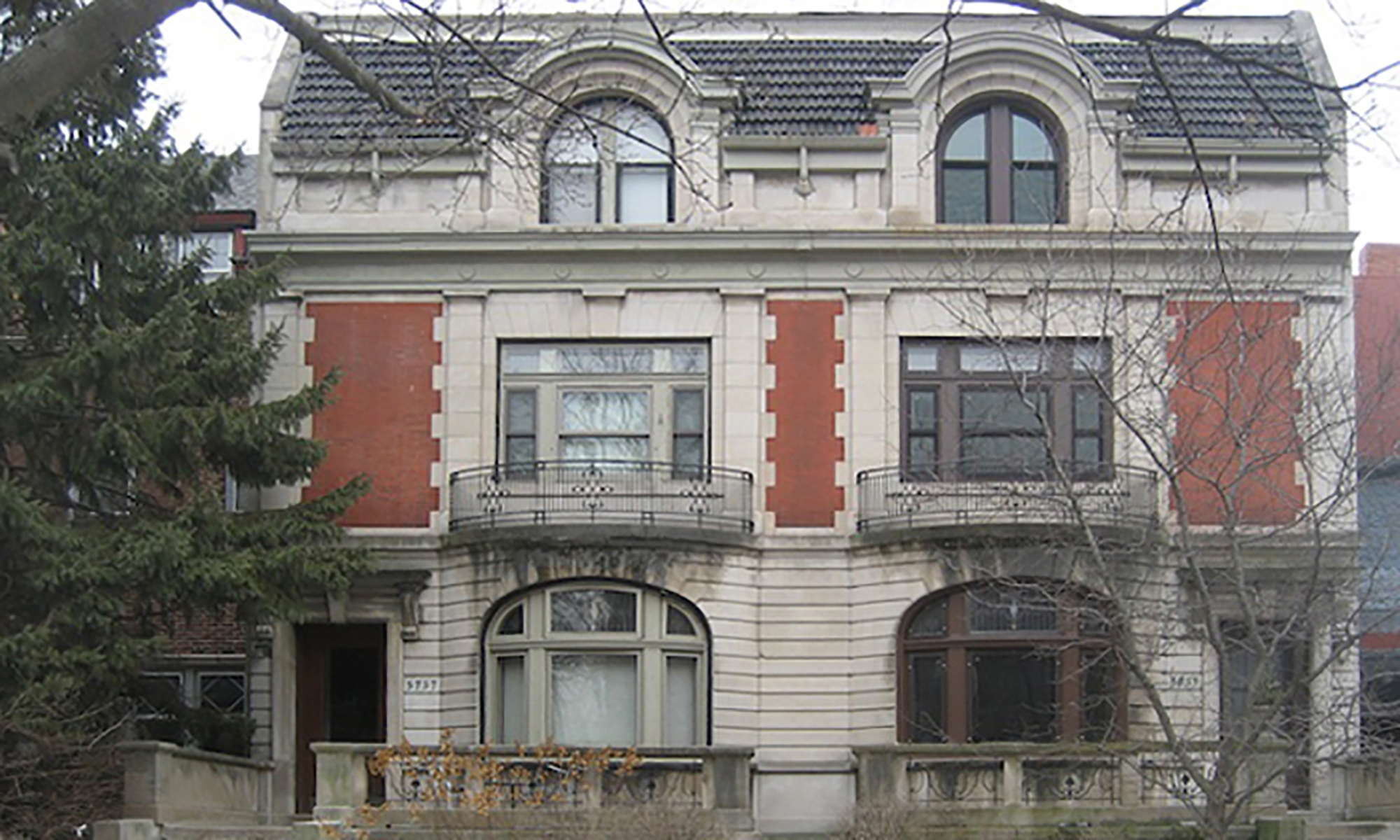
The Dodd family's former residence at 5757 S. Blackstone. (Photo by Elizabeth Station)
A best-selling book follows a UChicago family to Berlin.
In 1933 a University of Chicago professor named William E. Dodd became the US ambassador to Nazi Germany. A historian of the American South and biographer of Woodrow Wilson, he was an unlikely candidate—and President Franklin D. Roosevelt’s fifth choice—for the post. In the Garden of Beasts, a 2011 book by Erik Larson, tells the tale of Dodd’s unlikely ambassadorship.
Larson, who wrote The Devil in the White City about the 1893 Chicago World’s Fair, has a talent for finding true stories that read like fiction. Researching the events that propelled the Dodd family “from their snug home in Chicago to the heart of Hitler’s Berlin,” Larson discovered that Dodd originally sought a diplomatic post to escape his duties as history department chair. He wanted more time to work on his unfinished history of the Old South, and the University’s refusal to heat faculty offices on cold winter Sundays—Dodd’s only free day for uninterrupted writing—may have played a role in his decision to leave Chicago.
Meanwhile Dodd’s 24-year-old daughter Martha (X'30), a lively literary editor at the Chicago Tribune, thought the family’s move to Berlin would be a grand adventure. Soon after arriving in Germany, she had an affair with Gestapo chief Rudolf Diels. Later she fell in love with a young Soviet agent who tried to recruit her to pass secrets to Stalin’s secret police.
Trained at the University of Leipzig, Dodd loved Germany and its people. But as ambassador he refused to attend Nazi Party rallies and with time, vowed never to host Hitler and other high officials at the US embassy or his home. “I have a sense of horror when I look at the man,” he wrote in 1934. Yet Dodd’s moral intransigence earned him mostly derision, according to Larson. A contemporary Fortune magazine article called Dodd “a square academic peg in a round diplomatic hole,” and his detractors in the State Department privately referred to him as “Ambassador Dud.”
Dodd died in early 1940, just two years after leaving Berlin and retiring to his Virginia farm. Although he served on the Chicago faculty for more than two decades, most of his papers ended up in the Library of Congress. But other remnants of Dodd can be found at the University—the handsome family home still stands at 5757 S. Blackstone, and a handful of black-and-white photos from the Berlin years are filed away in the library’s Special Collections Research Center. But besides a stamp from the New York Times Berlin bureau and the words “Dodd, William” penciled on the back, the photos render few facts about the man whom Larson believes was a “diplomat by accident, not demeanor.”
Curious to know more, I contacted Larson for an interview and e-mailed him digital versions of the photos to see if he could fill in the blanks. He responded quickly—maybe because he’s still fascinated with Dodd, or maybe because his own daughter, Lauren, is a senior in the College.
Read the interview with Erik Larson and see the photos of Ambassador Dodd and family.
